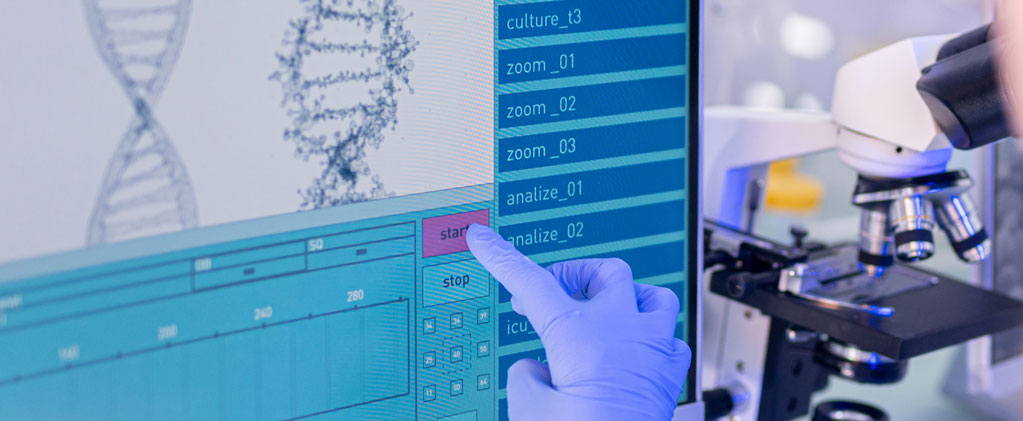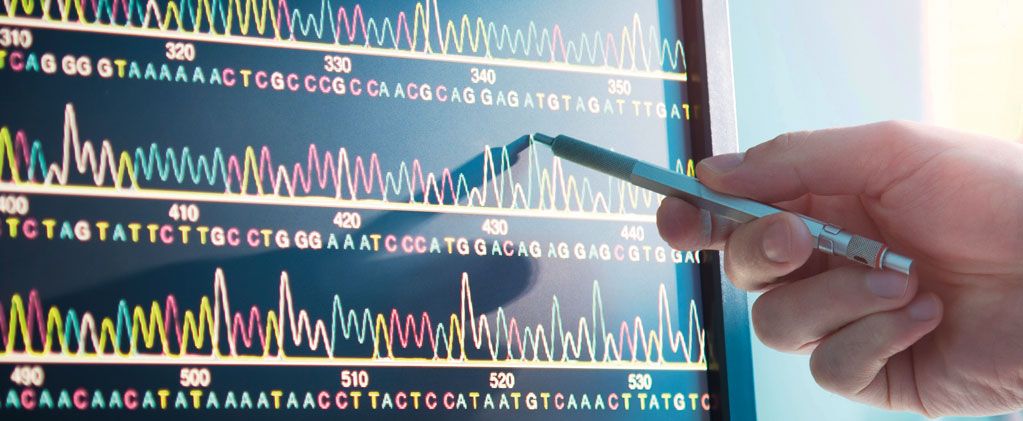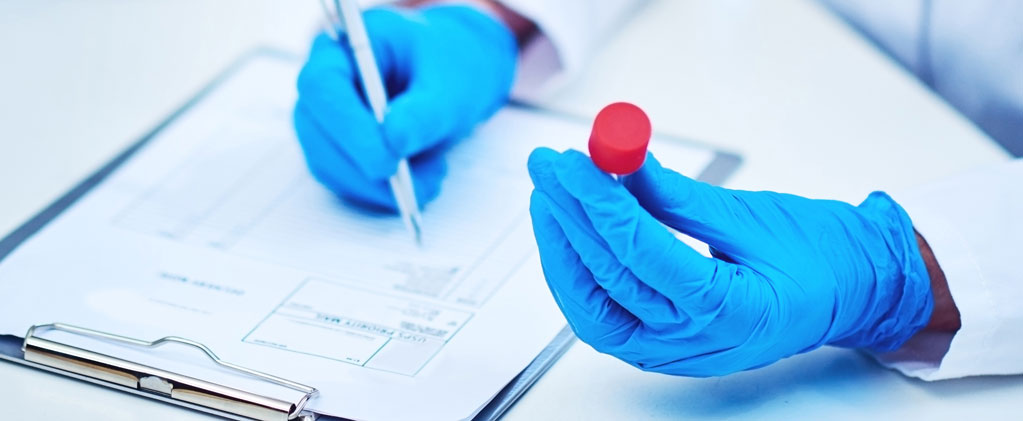TARGET AUDIENCE
Practitioners from any forensic discipline – e.g. reporting officers, chief scientists, lawyers – with a University degree (at least BSc) or an equivalent degree of a higher education programme
The course is given in English. For exercises, discussions and one-to-one tutorials, English or French are available as further languages.
INTRODUCTION
This online Certificate of Advanced Studies (CAS) is designed to train practitioners in the most up-to-date approaches to the evaluation and interpretation of scientific evidence. It will provide sound theoretical and practical background in probabilistic and statistical reasoning. A probabilistic framework will be established and its use will be illustrated by an extensive set of realistic case studies.
The course addresses practical issues of interpretation that forensic scientists encounter in their daily activities: interpretation of raw data, sampling issues, communication of findings in both written and oral statements.
The course team also offers three online short courses: Essentials of forensic interpretation, Essentials of DNA interpretation and Advanced DNA interpretation.
OBJECTIVES
- To gain specialized and up-to-date knowledge in the field of forensic interpretation and evaluation of evidence
- To master probabilistic reasoning, Bayesian networks and statistical methods using appropriate tools and softwares
- To manage issues of interpretation at a high level from case reception to court
- To acquire skills in oral and written communication of uncertainty
- To develop independence and self-confidence in solving practical inferential problems
- To gain a harmonised view with regard to interpretation across forensic disciplines and laboratories, including the establishment of Standard Operating Procedures
CURSUS & CERTIFICATION
The Certificate of Advanced Studies (CAS) in Statistics and the Evaluation of Forensic Evidence represents 597 hours of course (340 hours of asynchronous online teaching + 7 hours of synchronous online teaching + 250 hours of personal work):
- 6 core modules
- 2 specialised modules
- Regular online evaluation on all modules
Participants will take all core modules and choose one of the two specialised modules.
Core modules cover interdisciplinary interpretation issues that cross forensic disciplines. Specific evidential topics such as DNA, micro-traces, marks and impressions or handwriting will be covered in specialised modules.
Participants who successfully completed the course will receive a Certificate of Advanced Studies (CAS) in Statistics and the Evaluation of Forensic Evidence, delivered by the University of Lausanne, which is granted 20 ECTS credits.
Consult the Academic Regulations.
PROGRAM
Core Module 1: Uncertainty in forensic science
- Principles of interpretation
- Statistics and the nature of probability
- Hierarchy of propositions
- Statement writing and fallacies
- Bayesian Networks
Core Module 2: Assessing evidence given source level propositions
- Assigning a likelihood ratio (LR)
- The two trace problem
- Statement writing
- Standard Operating Procedures
- Bayesian networks
Core Module 3: Assessing evidence given activity level propositions
- Estimation of a proportion
- Additional factors (transfer, persistence, background)
- LR development
- Bayesian networks
Core Module 4: Assessing evidence given offence level propositions
- Relevance
- Multiple offenders
- LR development
- Bayesian networks
Core Module 5: Pre-assessment and management of cases
- Case and evidence pre-assessment
- Case strategy
- Bayesian networks
Specialised Modules (Participants choose one of the two specialised modules)
Specialised Module 6a: DNA evidence
- Population genetics
- Paternity
- Missing persons
- Mixtures analysis
- MtDNA, STR-Y, further case studies on evaluation of DNA given activity level propositions
Specialised Module 6b: From glass to fingerprints
- Fingerprints and face recognition
- Footwear marks and tool marks
- Handwriting
- Sample size determination
- Multivariate data analysis
- Glass, fibres, drugs, GSR/FDR
Core Module 7: Evidential matters
- Combination of evidence
- Database selection
- Cross transfer
- Courtroom presentation
- Laboratory error
METHODOLOGICAL APPROACH
- Online training will allow the latest knowledge and expertise to be brought directly to your workplace without consideration of distances, travel expenses or time schedules.
- Specialists from well-established forensic institutions and participants will study and discuss case scenarios involving scientific evidence.
- Theoretical online material will be reinforced by formative and evaluative casework exercises.
- Specialised computer programs for evaluation and interpretation will be used (e.g. R, Hugin) and a registered forum will allow the sharing of hypothetical cases.
- Videoconferences will be organised to support specific learning tasks.
- Participants will also have an opportunity to put together a personal portfolio.
ORGANISATION
Organising Committee
Instructors
- Dr. Sc. Tacha Hicks, Faculty of Law, Criminal Justice and Public Administration (UNIL) – Trace evidence (including DNA)
- Professor Alex Biedermann, Faculty of Law, Criminal Justice and Public Administration (UNIL) – Graphical models
- Professor Christophe Champod, Faculty of Law, Criminal Justice and Public Administration (UNIL) – Identification evidence
- Professor Franco Taroni, Faculty of Law, Criminal Justice and Public Administration (UNIL) – Forensic statistics
Professor Colin Aitken (University of Edinburgh, Scotland) and Dr. Sc. Ian Evett (Principal Forensic Services Ltd., England) will act as consultants and take an active part in the course.
All of them have extensive theoretical and practical experience with evaluation and interpretation from laboratory to courtroom. They have published over the years numerous scholarly papers and textbooks on the subjects of evaluation and statistics in forensic science.
For academic questions
- Programme coordination : sefe@unil.ch
PRACTICAL INFORMATION
Dates and schedule
The course lasts 21 months with a workload per week of:
- 4 hours on the online platform
- 3 to 4 hours of personal work
Course breaks and holidays are included to allow flexibility.
Course venue
Online Course
Course fee *
12,000 Swiss Francs for the whole period **
* based on the price of the last edition
** 10% special discount for all participants who take a second course given by the committee
REGISTRATION
Fill in the registration form and upload your CV and copies of your diplomas.
Preference will be given to forensic scientists with casework and reporting experience.
Registration deadline
Registration Closed
Be alerted as soon as registration opens for the next edition of this course, register on our Stay Informed platform.
ALUMNI TESTIMONIALS
« Thank you very much for your coaching during this 18 month course. It has been a pleasure to work with you during this time. The course is of an outstanding quality and I learned a lot! » Kris De Wael, National Institute of Criminalistics and Criminology, Belgium
« The clarity of the course material, the learning from the exercises and the feedback are excellent. It is stimulating, varied and enjoyable. » Louise McKenna, Forensic Science Laboratory, Ireland
« Many thanks to the whole SEFE team for supporting and guiding me through the course. I thoroughly enjoyed it and learnt a great deal. » Gareth Philips, Defence Science & Technology Laboratory, UK
« I think you really do a great job in building up this course. I am impressed with how many different kinds of teaching material (powerpoint presentations, videos, exercises, literature, etc.) you used to give us a better understanding of statistics. » Andrea Wächter, Landeskriminalamt, Germany
« It is not easy to develop or present a course like this and you all did a fantastic job with a difficult and challenging topic. I really enjoyed the course and unquestionably learned a great deal. I believe there is still a lot of work to be done in this area but I expect what I’ve learned so far will influence our section’s approach to evidence evaluation and reporting. I personally have no doubt that, in time, all forensic laboratories will be doing the same type of thing. » Brent Ostrum, Canada Border Services Agency, Canada



